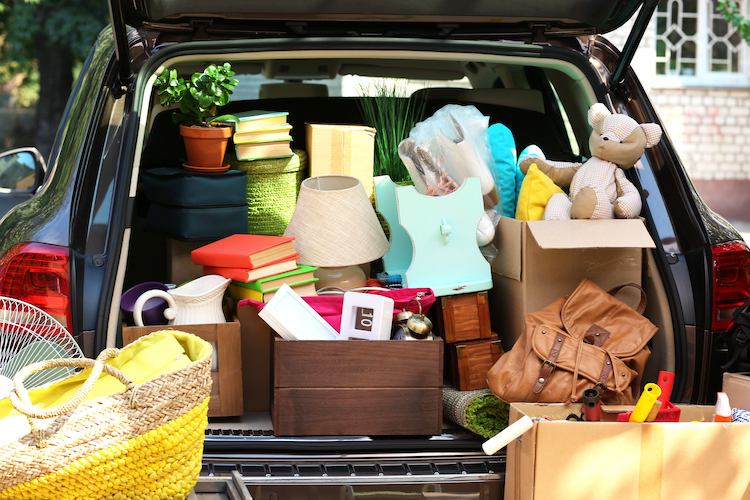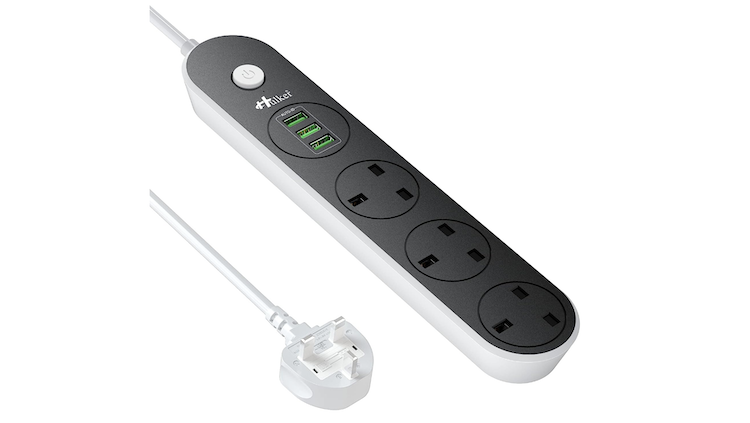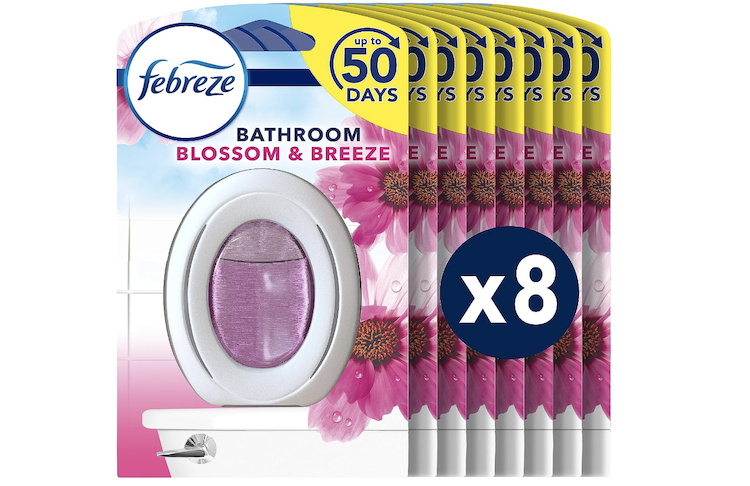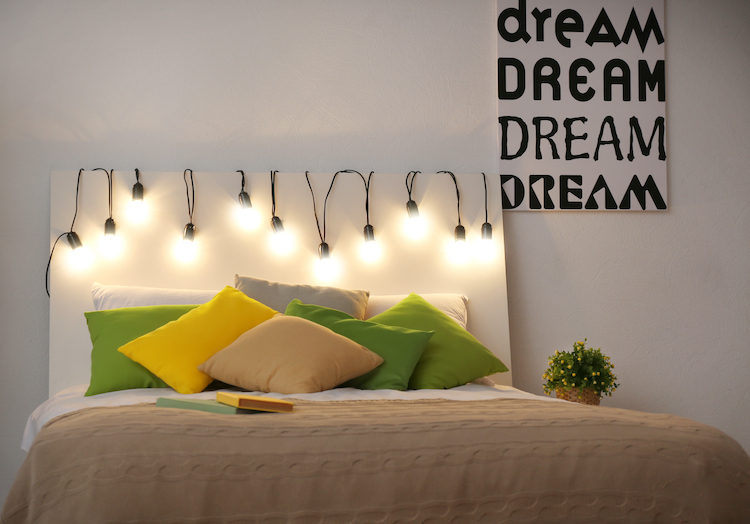
Can you take a mini fridge to university? Are you allowed to have fairy lights in uni accommodation? Do you even know what items are prohibited in university halls?
If your teen is heading off to uni for the first time, this post is for you. Your young person will probably live in university accommodation or a halls of residence. So you need to know the things that they aren’t allowed to take with ’em.
There are plenty of checklists around that explain all the things your teens should take with them when they start university. But do you know about the things that aren’t allowed in university accommodation?
This post may contain affiliate content
What items are not allowed in uni halls?
This week we signed the contract for Flea’s halls. And we noticed a few surprising items that aren’t allowed in her room.
Every university and college has slightly different rules around things you aren’t allowed in halls. Some rules are just common sense. I think we all know not to bring a barbecue into a dorm, or fireworks. But other prohibited items are more surprising.
Also – some of these rules must have amazing stories behind them. What happened at Durham that means they specifically tell students not to bring a paintball gun to college? Why has Portsmouth banned surf boards in bedrooms?
Having looked at a bunch of different UK university websites, here are 20 of the most common prohibited items.
20 Things You Can’t Take into University Halls
A mini fridge
Most universities ban mini fridges in halls because of the risk they might overheat and cause a fire. While a few unis (like Exeter) actually provide their students with fridges, most won’t let you bring your own. That is unless it’s needed to store medicine or items related to a medical need. Looking for a student friendly fridge? This model is currently £2o off on Amazon.
Kettles or toasters
I am a passionate believer that there aren’t many days that won’t be improved by a couple of slices of hot toast and a nice cup of coffee. But here’s the bad news, students. You actually can’t usually take your own toaster or kettle to halls. That’s because small appliances are considered a fire risk and will be prohibited. Some unis will let you bring them into a shared kitchen, but why bother? The uni will provide them for you, in most cases. So fear not – your afternoon toast fix is secure, so long as you don’t mind sharing a grubby toaster with a bunch of other students. Huzzah!
Candles or incense burners
This one is for the people who don’t know the obvious. You shouldn’t take any type of wax burner, electric diffuser, candle or similar items to uni halls. They are strictly forbidden in all cases. It’s obvious really – it’s a fire risk. You’ll just have to listen to your sad music using an electric candle or an appropriately dimmed lamp.
Plug in adapters
Lots of uni kit checklists will recommend extension leads, but it’s important to get the right sort. Generally universities aren’t keen on cube or block adapters because they might overheat. They are happy with a strip extension lead for a maximum of four plugs, and it must also have a fuse. That’s not just about keeping the uni happy, by the way – it’s also less likely to fry your laptop right in the middle of finishing off that vital essay that’s due the next morning.


Try this one from Amazon if you are looking for something suitable – it has surge protection to protect their laptop along with 3 plug sockets and 3 USB ports.
Fairy lights
Fairy lights are a staple in many teen bedrooms and they’re a great way to make a university dorm look more homely. But certain fairy lights are a big no-no in university halls because of the risk they’ll overheat. Rather than plug-in lights, most places let you use battery operated lights, so long as they aren’t touching fabrics in the room (like curtains). Also, they must be turned off when you aren’t in the room.
I like this 16ft string from Amazon, which is long enough to go around a room, and comes with a remote control (so you can turn them off without getting out of bed).
Blu Tack or Sellotape
Of course when you move into halls, you’ll want to put pictures, photos and posters on the walls. But if you don’t want to be landed with a decoration bill when you move out of halls, take note that most uni halls don’t like you using blu tack, white tack or Sellotape. Their argument is that blu and white tack leave marks on the walls, while tape can pull away paint when it’s removed.
Whatever you stick on the walls should be 100% removable without damaging the paint or leaving a stain. That means Command Strips for pictures, and we’ve especially liked these small command stickers for posters.
I will say from experience that some uni halls use a paint that defies any sort of Command Strip and we have simply taken chunks out of walls removing them. My absolute top tip is that whatever you use, don’t take it off the walls before you leave. Make that a problem for the next person who lives there!
Ebikes and Scooters
Electric bikes can make getting around campus much easier, but these sorts of items are usually banned in university halls because of the fire risk from the batteries.
You may be able to store an e-bike if your halls has a dedicated bike locker but they will not be permitted in your room. I’d definitely factor this into your accommodation choices – my daughter’s halls had a bike store and she was able to keep her bike there and take the removable battery into her room for safekeeping.
Drinking Games
Several unis we looked at this year had policies forbidding students from bringing drinking games into halls because of the risk they present of noise nuisance and anti-social behaviour. So I guess this means kids will need to make up their own games?
And definitely avoid posting the evidence on social media 🙂
Seriously, not everyone you share a flat with at uni will be a fan of drinking culture so while it’s a big part of first year for lots of kids, it’s important to be considerate.
Extra furniture
You might not have space in halls for an extra shelf or chair. Many dorm rooms are pretty small, after all. But if you do, check the contract.
Some universities ban extra furniture from bedrooms because it hasn’t been tested and might not meet fire safety standards. This wasn’t an issue in my daughter’s UNITE accommodation and we did actually invest in a couple of small side tables so she could use one as a bedside table and another to hold a lamp near her mirror.
Illegal drugs
Well, this one is a no-brainer. Most university accommodation providers consider the use of illegal drugs to be grounds for an immediate termination of an accommodation contract. Don’t risk it, kids.
Side note: most uni accommodation providers whether private or uni-owned, do have the right to check your room for contraband so don’t assume just because your stash is in a drawer, you won’t get caught. One student recently got snitched on by his neighbour who smelt drugs – walls in uni halls are paper-thin so nothing you do is a secret.
Pets, including goldfish
I think we can all understand that you don’t want cats and dogs in halls. That said, I love that Leeds University thought to add “including goldfish” to their prohibited items list. Definitely you cannot have a goldfish at uni. You just know that somebody somewhere thought they’d found a loophole.
Plug-in air fresheners
Again, plug-in air fresheners are widely seen as a fire risk and aren’t allowed in most uni halls. Instead, try these simple air fresheners that last for 30+ days. A pack of 8 is currently under £20 on Amazon.


Humidifiers or personal heaters.
Two words: fire risk. You aren’t allowed to have a portable heater in your room at university. That can suck in the winter if you’re in a cold snap, in which case my recommendation is to invest in lots of fleece blankets, and maybe a wearable sleeping bag. If you do use a heated blanket, don’t leave it on the bed when it isn’t being used, and make sure it’s kept in tip-top condition.
Door wedges
Most uni accommodation will have fire doors, so the uni isn’t keen on students propping their door open. I’ve seen some websites recommend wedging doors open in the first week to help you get to know your flatmates, and while this is unlikely to be an issue on moving in day, it’s unlikely to be allowed after that.
Some halls will also ask you not to use over the door hangers or hooks for similar reasons. Anything that might prevent your door from opening and closing properly is a no-no.
Electric clothes dryers
While it’s tempting to avoid the cost and hassle of uni laundry dryers, most unis have banned electric clothes rails and dryers from accommodation. This is because of the risk of such items overheating and catching fire.
At Flea’s uni, the building managers at her halls recently complained that several students had brought electric portable washing machines. These are definitely not allowed. Instead, try using the laundrette and then follow up with a simple folding clothes airer like this one. Also a REALLY good tip to get past the woeful dryers you’ll find in halls is to invest in a set of reusable laundry balls like these – they help stop clothes from sticking together in big machines, and as a result they dry faster and more evenly. They’re less than £10 and a great buy!
LED Strip Lights
These little lights are very popular but they also do tend to take off paint from the wall and ceiling when they’re removed, so they are completely banned in most university accommodation.
Go for battery operated decorative lights or fairy lights instead. Future you will be grateful when you don’t get hit with a bill for repainting.
My teen also loved this colour changing light that she could control with her phone, which was perfect for setting the right ‘ambience’ in her room, and didn’t involve anyone standing on a chair trying to blue tack a light strip into a corner.


Vapes and e-cigarettes
Student accommodation in the UK is strictly no smoking and this rule extends to vapes and e-cigarettes. Not only are they potentially harmful to health, the batteries pose a fire risk. Most halls accept that many students will use such devices but they must not ever be used in your room. As a side note, I’d suggest not charging them next to your bed, as they’re a serious fire hazard.
Dartboard and ball games
I mean – it isn’t hard to work out why these things are on the list of banned items in uni accommodation.
Washing lines
This one is interesting and I spotted it on the list of banned items at both LSE and Keele.
I suspect the thinking is that lines of wet washing might cause mould or damp, particularly in the cooler months in rooms that do not have great ventilation. Second, they need to be attached to walls, causing potential issues with damage to the decor. More commonly, most universities also prohibit any clothes hanging out of windows, presumably for safety reasons.
Needles
If you are a crafter and use needles for sewing or other craft projects, check out the small print of your accommodation because several universities list craft needles as one of the items prohibited in halls.


What shouldn’t I bring to uni?
If you’re wondering what can’t I take to uni accommodation, then in general the rules are based on safety.
If you have any sort of electrical item that could potentially overheat and cause a fire, then it’s a risk and a general ‘no’. Same for items that consume large quantities of power and might trip the system.
If you do a sport like archery, then halls are highly unlikely to allow you to store a longbow in your room.
Of course, universities recognise that kids will bring TVs, laptops, hair dryers and the like and these items are allowed but must meet certain standards, usually that they conform to European standards and display the CE Kite mark on the cable or plug.
At some unis kids have room inspections, leading to such items that don’t meet the rules being confiscated until they can be taken home. But in other cases, rooms are never checked and people happily use their fridge all year. I guess it’s a personal choice to risk it or not.
What is PAT testing?
At Glasgow, the university requires that all electrical items that ARE permitted in halls should be PAT tested, while Loughborough says that if your appliance trips the circuit or is considered potentially risky, it will be PAT tested.
PAT testing is basically a process where a competent person visually inspects an appliance, its lead and plug and says it looks safe. It’s not THAT big a deal.
Some unis will do PAT testing for you, some will ask you to do it yourself. Browsing the student forums, it seems that this requirement is often overlooked if items are less than a year old, or don’t cause any issues. Some enterprising students just buy their own “PAT Tested” stickers, and pop them onto their devices, which is obviously very wrong and I would never recommend buying them.






